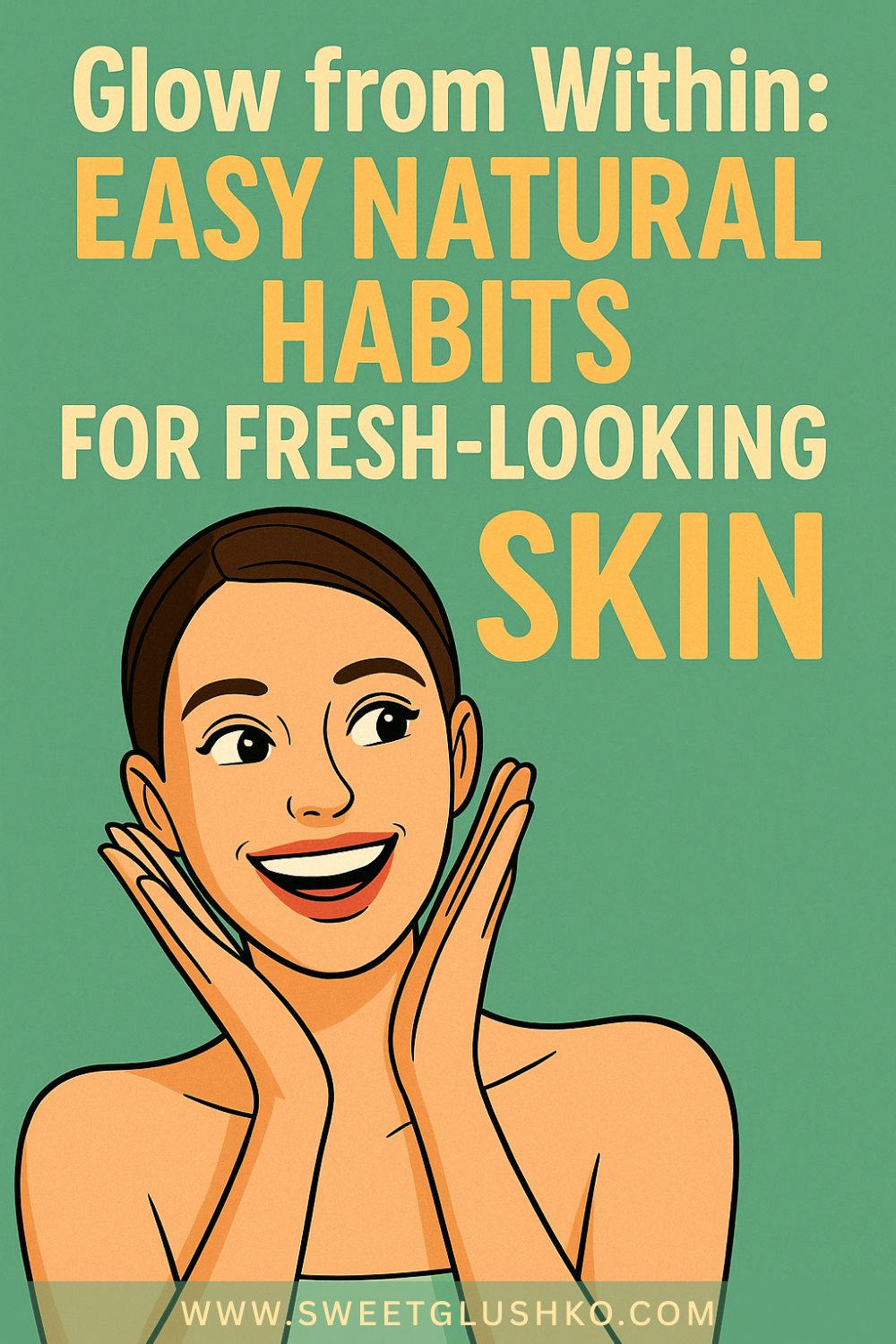Many of us believe that true beauty lies in how perfectly our foundation blends, how well our primer smooths the skin, or how precisely we apply our highlighter to accentuate our features. We often spend a fortune on makeup products that weigh just a few grams, all in pursuit of that flawless finish.
But what happens once the makeup comes off? Do you still see the same radiance in the mirror? Do you feel just as confident without the glam? If your answer is no, you’re not alone.

It’s important to remember that beauty isn’t defined by the cosmetics we use. True beauty shines through when you’re comfortable in your own skin—whether you’re fully glammed up or going bare-faced. Embracing your natural self is just as empowering as mastering a makeup routine.
1. Moisturize Daily
Many skin concerns are often linked to improper moisturization. Whether your skin feels too oily or too dry, both can lead to dullness, irritation, or breakouts. Keeping your skin well-hydrated is essential for maintaining a smooth and healthy complexion. A good moisturizer acts like a base layer that protects and nourishes your skin throughout the day. When used regularly, it helps restore softness, reduce dryness, and enhance your skin’s natural glow.
2. Stay Active With Regular Exercise
Exercise isn’t just for fitness—it’s also a powerful tool for healthy skin. When you work out, your body releases toxins through sweat. This process helps to cleanse your system from within, reducing the buildup of harmful substances that can affect your skin’s appearance. Over time, regular physical activity promotes better blood circulation and supports clearer, more vibrant skin.
3. Try Juicing For Skin Nutrition
If cooking isn’t your thing, juicing offers a quick and easy way to get nutrients that your skin loves. Blending fruits and vegetables into smoothies or cold-pressed juices makes it easier for your body to absorb vitamins, antioxidants, and minerals. These drinks can give your skin the nourishment it needs to look brighter, healthier, and more refreshed—without much effort in the kitchen.
4. Choose Healthier Foods
Your skin reflects what you feed it. A diet rich in whole foods—such as vegetables, fruits, nuts, seeds, and lean proteins—can greatly improve your skin’s texture and tone. Avoiding highly processed foods and refined sugars helps your body detox naturally and supports better cell regeneration. Incorporating foods high in antioxidants and essential nutrients gives your skin a chance to repair itself and glow more naturally.
5. Exfoliate Regularly
Dead skin cells sitting on the surface of your face can cause it to look dull or uneven. That’s where exfoliation makes a difference. Gently exfoliating two or three times a week helps remove buildup, unclog pores, and prevent future breakouts. It also helps lighten dark spots and acne scars, revealing smoother, more radiant skin underneath.
6. Hydrate With Plenty Of Water
One of the simplest yet most effective beauty habits is staying hydrated. Water helps flush out toxins, improves skin elasticity, and supports a healthy glow. Drinking enough water every day can keep your complexion looking fresh, plump, and youthful. Think of it as an internal skincare treatment that supports every other step in your routine.
7. Use Natural DIY Face Masks
You don’t need expensive products to care for your skin. In fact, many powerful remedies can be found right in your kitchen. DIY face masks made with natural ingredients like honey, yogurt, turmeric, or aloe vera can target specific skin concerns—from dryness and dullness to uneven tone or sun damage. Experiment with different recipes and stick with the ones your skin responds to best.